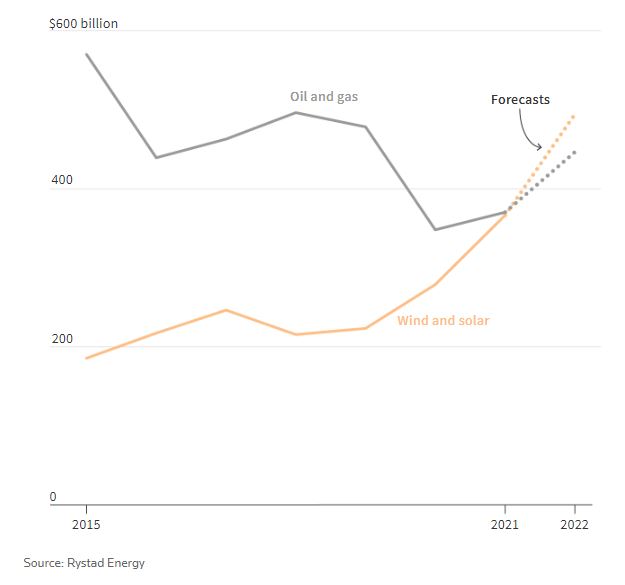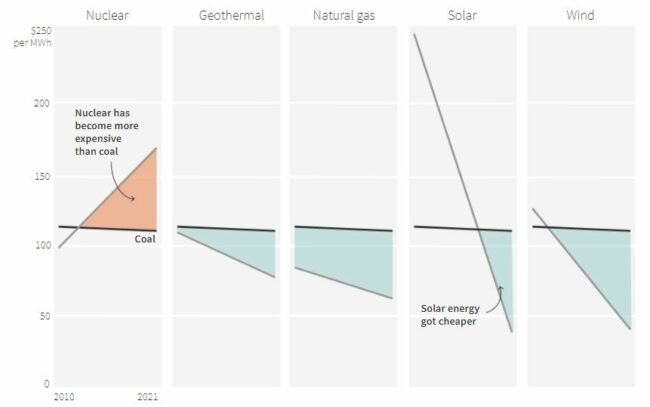Since last year’s global climate summit, clean energy has become more affordable in comparison to fossil fuels, but implementation remains a challenge.
While high inflation and recessionary fears have stirred up the global economy over the last year, one sector appears to have arisen relatively unscathed: renewable energy.
Wind, solar, and other clean energy costs rise more slowly than those of fossil fuels. At the same time, the amount of investor money flowing into these sectors probably will exceed investments in oil and gas. This will happen for the first time, according to research organizations.
That is good news for policymakers and climate advocates attending the COP27 climate summit in Egypt this week. The bad news is that much of the progress toward cleaner energy is taking place in the developed world, rather than in poorer countries where the effects of climate change are most drastic.
Investors like to invest in clean energy
Despite capital outflows elsewhere, Rystad Energy, an independent research firm, predicts that investors will pour nearly $500 billion into the wind and solar projects this year, a 35% increase over last year. This would surpass the $447 billion in oil and gas investments seen this year.
First time ever, it seems that global wind and solar investments are poised to surpass those in oil and gas this year.
The Rystad Energy prediction line chart shows how global investments in wind and solar energy are expected to surpass those in oil and gas this year.

In the meantime, clean energy is becoming more affordable.
According to Lazard, which tracks this based on “levelized cost of energy,” as supply disruptions linked to Russia’s invasion of Ukraine drove up natural gas prices in Europe and around the world this year, the costs of building and maintaining clean energy facilities likely increased much less dramatically this year after a decade of decline. To determine how cheap or expensive a technology is, the metric takes into account factors such as construction costs, fuel prices, and the number of years a facility can produce output.
Renewables are now less expensive than coal
The graph compares the levelized energy costs of coal and various renewable energy sources. Except for nuclear, coal is the most expensive form of energy.

Nonetheless, much of the progress in clean energy is taking place in advanced economies rather than in poorer countries that are most affected by climate change.
Poor countries produce less CO2 but suffer most from climate change
There is a link between the greenhouse gases released per capita and people’s income levels. Different independent research proves this claim.
Despite contributing only a small part of global carbon emissions each year, droughts and typhoons caused by climate change have the greatest impact on their progress.
And in the meantime, many high-income countries are the worst polluters. They emit the most carbon into the atmosphere. That is a direct result of rapid industrial growth and economic progress.
Funding matters in clean energy development
Previous climate summits have focused on developing strategies for rich countries to help developing countries transition to clean energy, including funding.
Following calls for rich countries to do more to combat climate change, participants at last year’s meetings pledged to “at least double” climate provisions to developing countries by 2025.
Nevertheless, the goal is still a long way off. Emerging economies in East Asia and the Pacific have seen a surge in public and private funding for climate adaptation and mitigation over the last two years. But Africa and other economies in development have lagged.
Africa is missing out on clean energy finance funds
The United States and Canada received three times as much funding, while East Asia received ten times as much as poorer regions.
According to the International Energy Agency, the global climate agenda is “gaining ground,” but it still requires more action to succeed.

